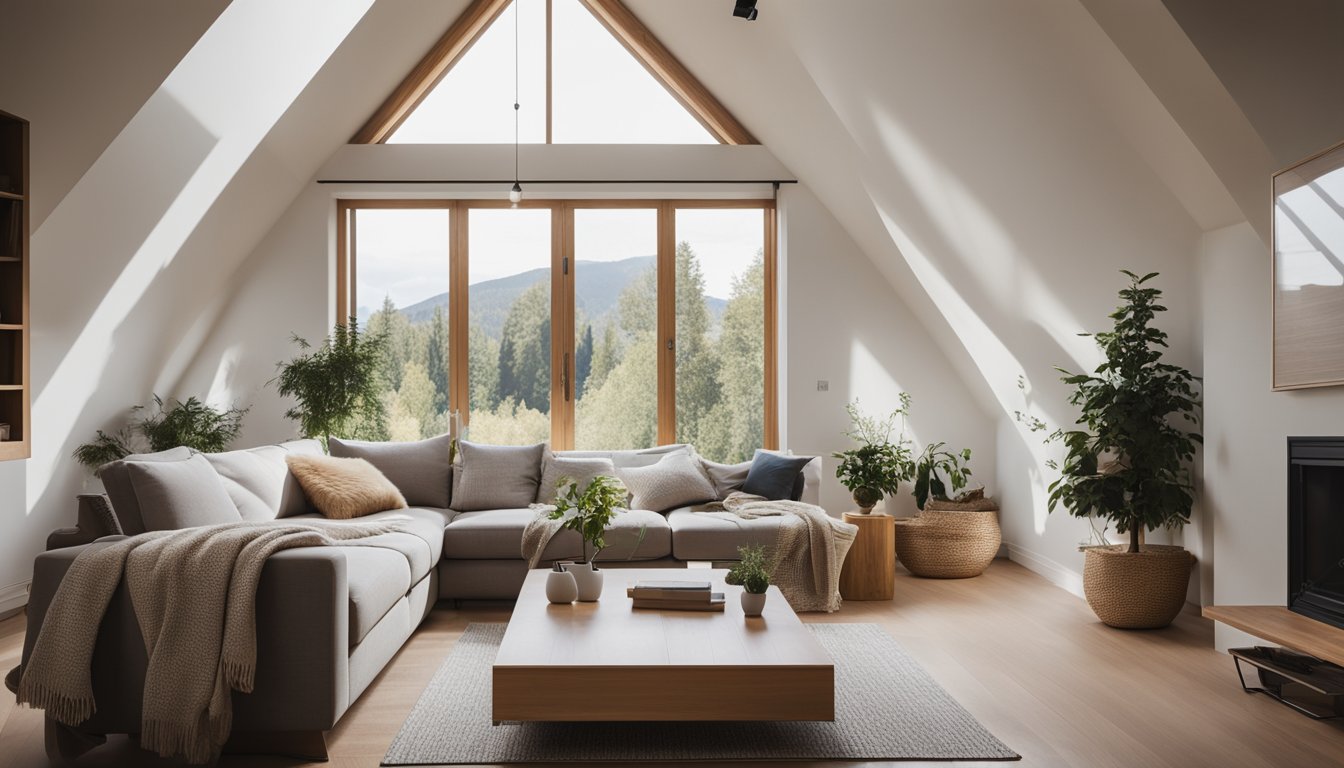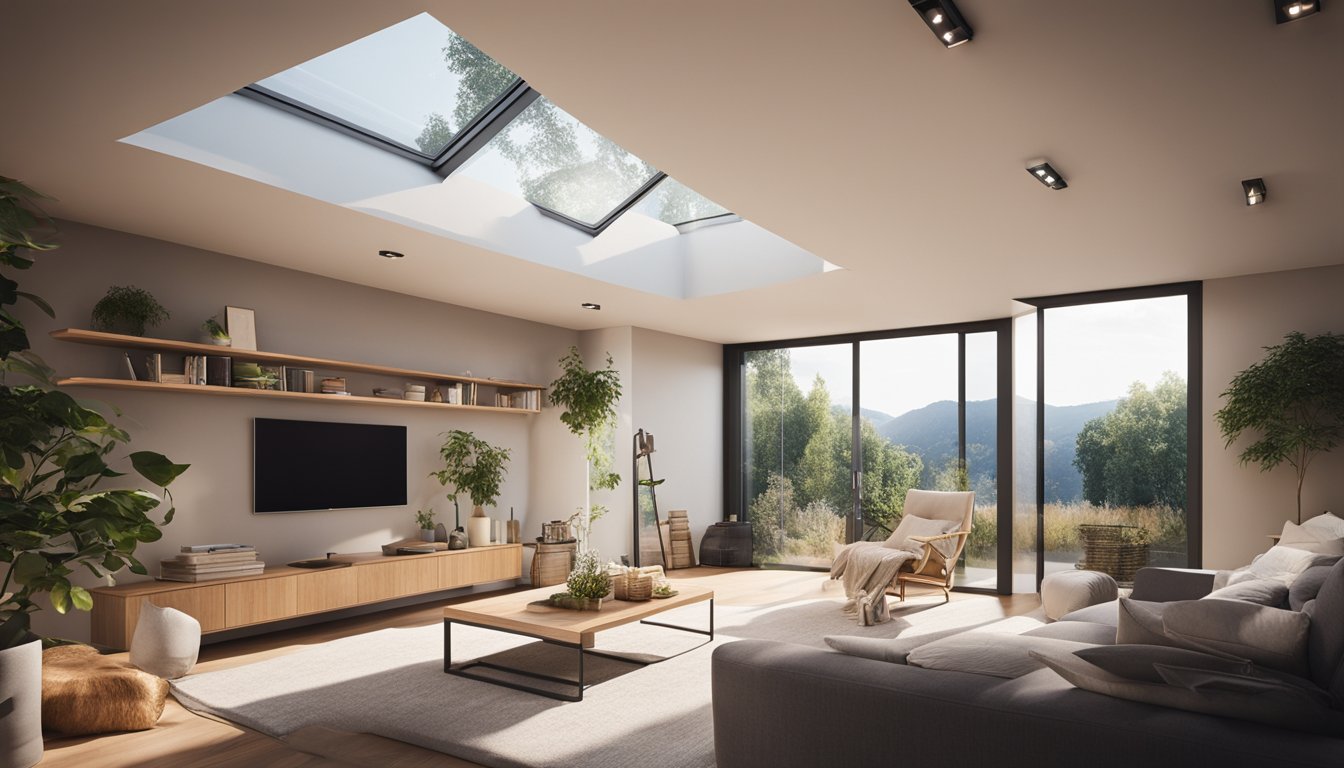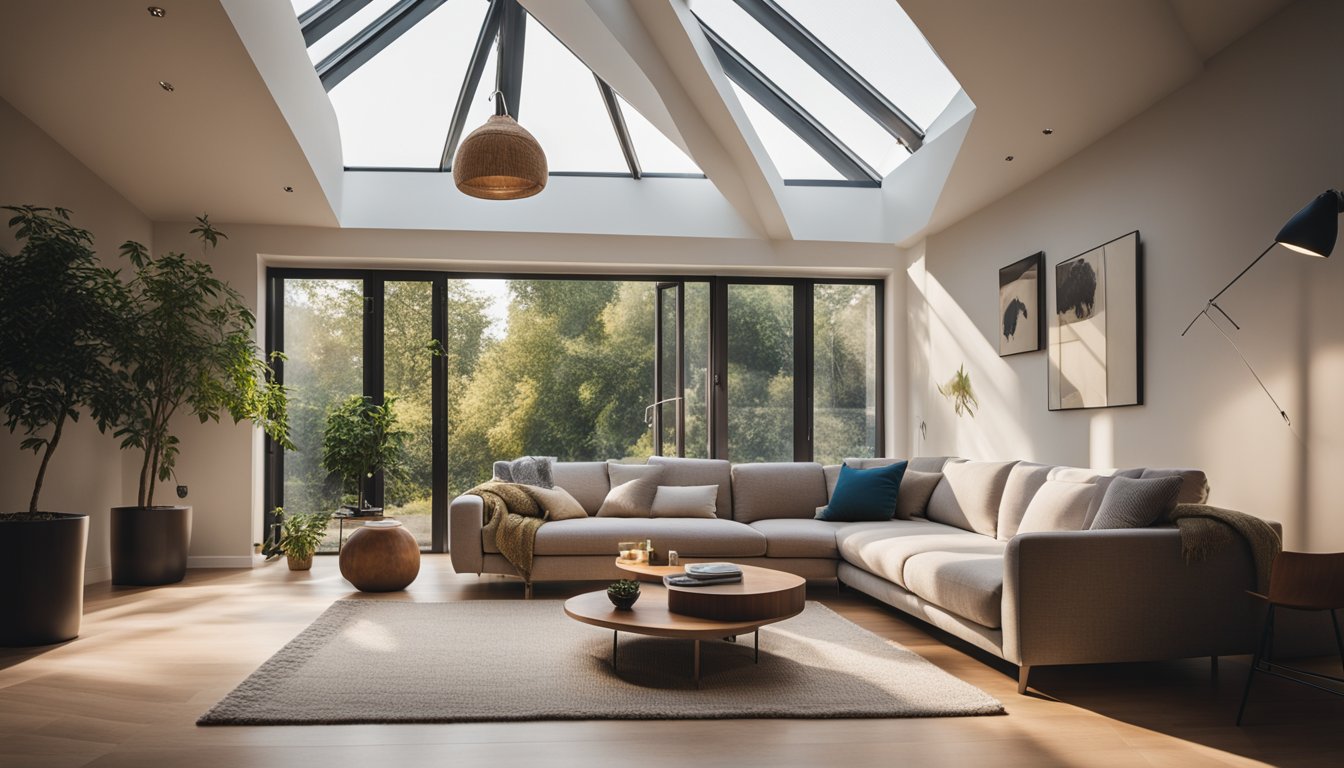Late updated: 14 Sep 2024 16:09
Written by: Oliver Bennett
Benefits Of Roof Windows For UK Homes: Enhancing Light and Space
Roof windows have grown increasingly popular in UK homes due to their transformative effects on living spaces. They channel an abundance of natural light, dramatically brightening up interior spaces while also offering stunning views of the sky. In addition to enhancing aesthetic appeal, roof windows can significantly improve energy efficiency and air circulation in your home. This makes them an excellent choice for those looking to create a more sustainable and comfortable living environment.

As we explore the myriad benefits roof windows bring, it's important to consider how they can be seamlessly integrated into various architectural styles. From sleek, modern designs to traditional English cottages, roof windows are a versatile addition that complements any home. By tapping into their potential, we can not only reduce our energy bills but also promote a healthier lifestyle.
Whether venturing into home renovations or new constructions, understanding the installation process is crucial. It involves selecting quality materials and ensuring compatibility with existing structures. Additionally, being mindful of regulations and guidelines can ensure that this home improvement enhances both the property value and our everyday living experience.
Key Takeaways
- Roof windows enhance natural light and energy efficiency.
- Versatile designs suit various architectural styles.
- Proper installation ensures long-term benefits.
Types and Benefits of Roof Windows in UK Homes
Roof windows offer multiple benefits, ranging from enhancing natural light and energy efficiency to improving ventilation and noise insulation. Choosing the right type is dependent on the specific needs and architecture of the building.
Maximising Natural Light with Skylights and Rooflights
Skylights and rooflights can significantly improve the amount of natural light entering a room. They are ideal for brightening up dim spaces, such as lofts and attics. Increased natural light can reduce the need for electric lighting, lowering energy costs.
Skylights are generally installed on pitched roofs, whereas rooflights work well with both flat and pitched roofs. Incorporating these can transform interiors, bringing warmth and openness. In the UK, cloudy skies can limit daylight, making these enhancements even more valuable.
Boosting Energy Efficiency through Improved Insulation and Triple Glazing
Roof windows equipped with advanced insulation and triple glazing can dramatically boost a home's energy efficiency. Insulation layers help maintain a stable indoor climate, reducing the need for artificial heating.
Triple glazing offers superior thermal performance, serving as a barrier to heat loss. This improvement is especially important in the UK’s colder regions. By minimising heating requirements, homeowners can see a reduction in energy bills.
Energy-efficient roof windows are not just practical; they are a sustainable choice that contributes to environmental conservation.
Enhancing Ventilation and Reducing Noise in Modern Living Spaces
Proper ventilation and noise reduction are crucial for comfortable living spaces. Roof windows can improve airflow, which is especially beneficial during warmer months. They help eliminate trapped heat and enhance indoor air quality.
In urban areas, where noise pollution is a concern, well-designed roof windows with noise-reducing features can ensure a quieter environment. Acoustic glazing is an option available in some modern roof windows, effectively dampening external sounds.
These elements work in tandem to create a more pleasant and healthy indoor atmosphere.
Design Considerations for Flat and Pitched Roofs
Designing for flat and pitched roofs requires different considerations to maximise the effectiveness of roof windows. Pitched roofs often accommodate centre-pivot or top-hung windows, leveraging their angular design for optimum light and views.
For flat roofs, domed rooflights are common, offering an unobtrusive yet functional addition. They have the potential to add architectural interest while meeting regulatory standards.
Selecting the appropriate shape, size, and positioning can enhance both aesthetics and functionality, allowing us to personalise our space.
Installation, Integration, and Regulatory Aspects

Roof windows are increasingly popular in UK homes due to their ability to enhance natural lighting and aesthetic appeal. Understanding the process of installation, the regulatory requirements, and maintenance is crucial for ensuring successful integration.
Professional Installation vs DIY: Weighing the Options
Opting for professional installation usually ensures that roof windows are fitted correctly, mitigating potential issues like leaks or poor energy efficiency. Experts possess the skills and tools necessary to handle complex tasks.
However, a DIY approach can be appealing for those who enjoy hands-on projects and want to save on labour costs. It's important to only tackle DIY installations if you're confident in your ability to meet safety standards. Utilise comprehensive guides and consider any warranties that may require professional installation.
Incorporating Blinds and Domed Rooflights for Functionality and Aesthetics
Adding blinds to roof windows enhances privacy and light control. Options such as blackout blinds are ideal for bedrooms, while light-filtering ones are suitable for living areas. Motorised blinds offer convenience, allowing adjustments at the touch of a button.
Domed rooflights are another feature that can improve both functionality and aesthetics. They maximise light intake and are particularly useful for flat roofs. Domed designs can be fixed or opening, the latter providing ventilation. Choose colours and materials that blend with your interior décor for a seamless look.
Understanding Building Regulations and Planning Permission
Building regulations ensure that roof windows contribute to the safety and energy efficiency of our homes. Specifications such as achieving a U-value of 1.6 W/m²K or better are particularly relevant. The U-value measures the window’s thermal efficiency, crucial for maintaining indoor temperatures.
For most roof windows, planning permission is not required unless the property is a listed building or in a conservation area. Still, consulting local authorities or a professional advisor is advisable before starting any work. Ensuring compliance avoids potential legal complications and secures the value added by the window installation.
Maintenance Tips to Prevent Leaking and Extend Lifespan
Regular maintenance is key to ensuring roof windows remain leak-free and functional. Inspect seals and frames for wear and damage; replace them promptly if needed. Cleaning glass surfaces and removing debris from external elements helps maintain their appearance and performance.
Checking drainage systems surrounding the window is vital to prevent water ingress. Proper lubrication of hinges and moving parts will extend their lifespan. Scheduled professional inspections can identify hidden issues early, saving on costly repairs and prolonging the life of the roof window.
Frequently Asked Questions

Roof windows offer a multitude of benefits for UK homes, from enhancing natural light and ventilation to boosting energy efficiency and aesthetic appeal. They can also contribute positively to a property's resale value. Let's explore some frequently asked questions about roof windows.
What advantages do roof windows offer in terms of natural lighting and ventilation?
Roof windows are effective in maximising natural light, which can transform dark or unused spaces into welcoming areas. By allowing fresh air to circulate, they improve ventilation, reducing indoor humidity and enhancing indoor air quality.
How can installing roof windows contribute to energy efficiency in UK homes?
Roof windows can significantly boost energy efficiency by reducing reliance on artificial lighting during daylight hours. High-performance glazing options improve insulation and can lower heating costs by retaining warmth in colder months while minimising excessive heat gain in summer.
What are the structural considerations when incorporating roof windows into an existing property?
When planning to install roof windows, structural elements such as roof pitch, truss arrangement, and load-bearing capacity must be evaluated. Professional assessment ensures the structural integrity is maintained, avoiding any potential issues with stress or leaks over time.
How do roof windows enhance the aesthetic appeal of a home?
Roof windows bring a modern and stylish look to a home. By introducing natural light, they create a sense of spaciousness and openness. Different designs and finishes allow for customisation to match or complement the existing decor.
What are the differences between various types of roof windows available on the UK market?
The UK market offers a variety of roof window types, including centre-pivot, top-hung, and balcony windows. Each type serves different functions and aesthetics. Centre-pivot windows are versatile, top-hung models provide uninterrupted views, and balcony windows enable temporary outdoor space.
Can roof windows improve the resale value of a property in the UK?
Investing in roof windows can potentially increase a home's resale value. Prospective buyers often see the added natural light and improved energy efficiency as attractive features. Enhanced indoor spaces and modern appearances can contribute to a more favourable property valuation.
